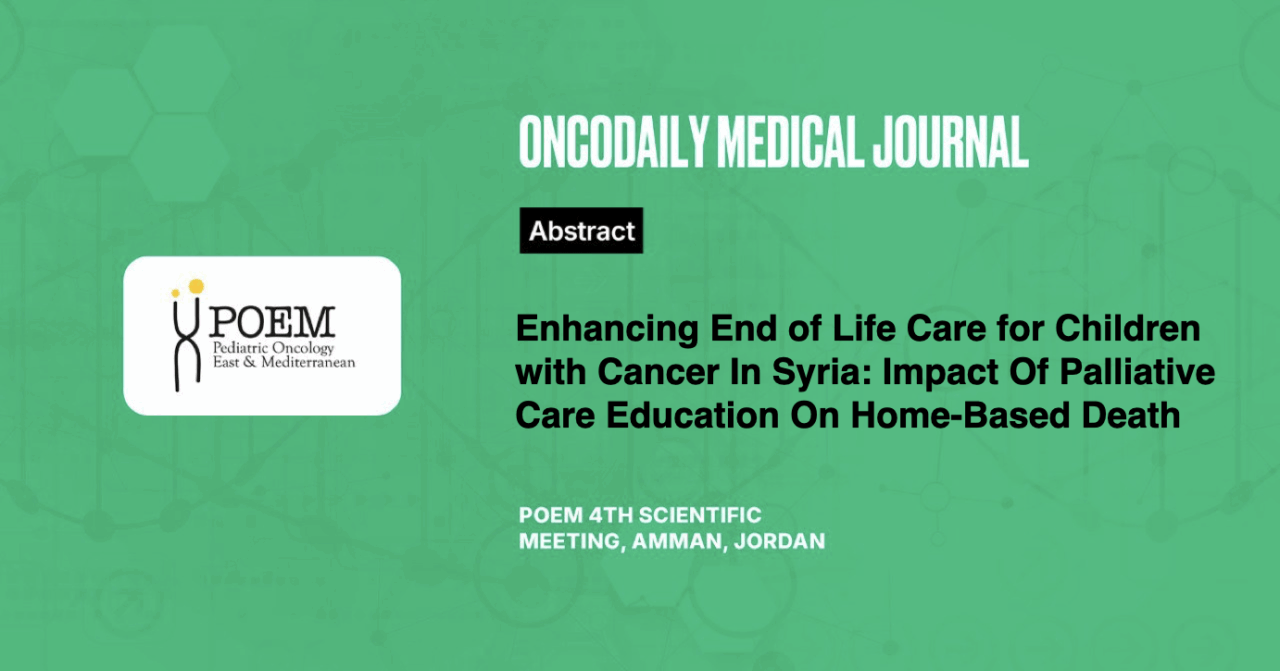Enhancing End of Life Care for Children with Cancer In Syria: Impact Of Palliative Care Education On Home-Based Death
Abstract
Introduction: Reducing hospital deaths is a key indicator of the quality of care for pediatric cancer patients approaching the end of life. This study aims to investigate the immediate impact of palliative care education on reducing hospital fatalities among children with cancer receiving non-curative treatment at an NGO-operated pediatric oncology center in Syria.
Methodology: This retrospective study examines the hospital-to-home death ratios among pediatric oncology patients undergoing non-curative therapy at BASMA Pediatric Oncology Unit in Syria, both pre and post palliative care education (PCE) intervention. Group A, comprising patients who passed away between November 2021 and October 2022, before PCE, whereas Group B, consisting of patients who passed away between November 2022 and October 2023, after PCE.
The PCE involved a series of six lectures delivered to the medical, nursing, and psychosocial staff of the unit by a trained palliative care champion. This champion had undergone comprehensive training through the St Jude Palliative Care Global Academy in September 2022, both onsite and online.
Results: Group A comprised 40 patients (17 with lymphoma/leukemia, 20 with solid tumors, and 3 with CNS tumors). Among these patients, 8 passed away at home (4 with lymphoma/leukemia, 3 with solid tumors, and 1 with CNS tumor), representing a lats or 20%. Group B consisted of 69 patients (17 with lymphoma/leukemia, 41 with solid tumors, and 11 with CNS tumors). Among these patients, 22 passed away at home (2 with lymphoma/leukemia, 16 with solid tumors, and 4 with CNS tumors), accounting for 31% of the total. Using univariate logistic regression comparison, the odds ratio for dying at home after PCE was 1.87 (95% CI: 0.75 4.72), p: 0.18.
Conclusion: The introduction of palliative care education within a pediatric oncology unit in Syria yielded a notable inclination towards increased occurrences of home deaths among pediatric cancer patients undergoing non-curative treatments.





